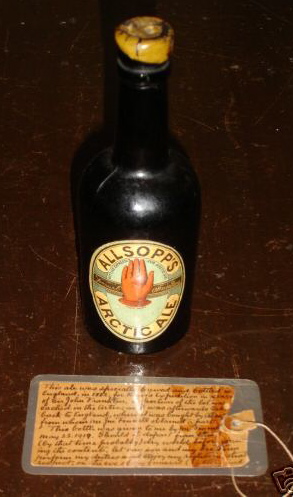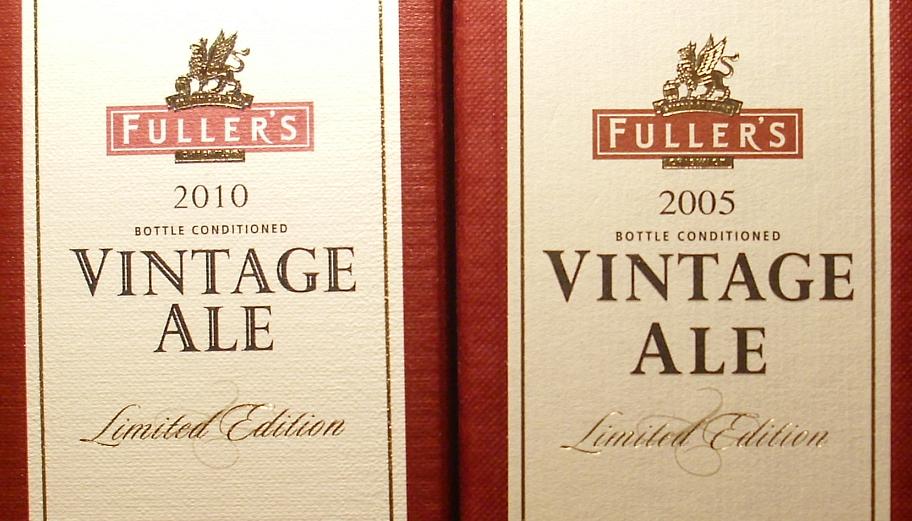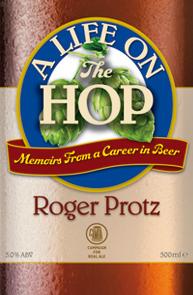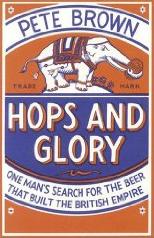 There is a bit of beery backroom buzz about plans to make a movie about the Allsopp’s Arctic Ale, the beer which accompanied a British navy expedition in the Canadian high Arctic in the mid-eighteenth century. The film maker’s website is not up yet but there is a Facebook page which reports:
There is a bit of beery backroom buzz about plans to make a movie about the Allsopp’s Arctic Ale, the beer which accompanied a British navy expedition in the Canadian high Arctic in the mid-eighteenth century. The film maker’s website is not up yet but there is a Facebook page which reports:
Sir Edward Belcher failed on his journey, abandoned four of the five ships in the ice, and returned to England to be court-marshalled (some thanks… huh?). A few of the bottles of Allsopp’s Ale came back to England, where in 2007 a bottle came up on EBay, and reportedly sold for $503,000 (this is what caught my interest). To my knowledge, there are only two bottles left in the world from the 1852 expedition. I have researched this ale in the deepest of all journals and records, both here and abroad. I now have a recipe for this Ale and intend to brew it near the Belcher Islands of the Hudson Bay in the Canadian Arctic.
There is more information hanging about the internets about this stuff and not just pictures of that eBay bottle. Available Arcticky data includes the passage below from the book The Last of The Arctic Voyages by Captain Sir Edward Belcher, C.B. about the failed search for the expedition of Sir John Franklin from 1852 to 1854. The book can be found in its entirety at Google books. Belcher was a bit of a tool in an old school way but, as a fellow Nova Scotian, one has to give him some props but we can leave it at that as far as the admiration goes. He did have a thing for the beer apparently – at least when stuck in the ice – as he noted on 21 December 1852 after the presentation of a pantomime on board his firmly frozen ship: “Allsopp. That name will live for ages in the recollection of all Polars.”
It seems that in addition to filling the hull with Allsopp’s Arctic Ale, Belcher also brought along a home brewing system. Here is the report of the production of beer on board starting around page 339:
Brewing from essence of malt and hops had been practised as early as the 6th of August last season, but the general adoption of our “home-brewed” did not fairly commence until the end of October; with what success I shall leave my readers to judge from the following report of the officer who superintended. It was much esteemed, and at times mixed to dilute the excellent beer supplied by Messrs. Allsopp.
“Her Majesty’s Skip ‘Assistance,’ Wellington Channel,
October 31, 1853.
Sir,
“1. In compliance with your directions, I have the honour to report upon the beer brewed from the essence of malt and of hops on board this ship during the winter 1852-1853, as follows, viz.:—
“2. An experiment was made on the 6th of August, 1852, to brew with the proportions prescribed by the makers (Hudson and Co.). Eighty pounds of malt and three pounds of hops were mixed with boiling water, and then started into a fifty-six gallon cask (filling it), placed by the side of the galley-fire: when the temperature had fallen to 90° there was added half a pound of yeast, in a state of fermentation, made by mixing dried yeast, sugar, and flour, in hot water; but although signs of fermentation were occasionally apparent at the bunghole during the day, yet, from the low temperature that prevailed at night (consequent upon the absence of the galley-fire), it could not be got to work satisfactorily. The beer produced, although palatable and drunk by the ship’s company, was so weak, from the inadequacy of the quantity of ingredients used, and so flat, in consequence of the inability to raise sufficient fermentation, that it was scarcely equal to the smallest table beer.
“3. On the 23rd of October, 1852, the ship being fixed in winter quarters, and the Sylvester warming apparatus at work, maintaining a constant equal temperature, brewing operations were commenced, with the view of keeping up a periodical supply for the ship’s company.
“4. The proportions used were,—essence of malt, 120 lbs., and of hops 4 lbs., to fifty-four gallons of water: these were boiled together for two hours in the ship’s coppers, and then put into a fifty-six gallon cask, which was placed (for the purpose of obtaining the highest temperature in the ship, steady at about 70°) by the side of the funnel of the Sylvester warming apparatus. In about eighteen hours after, the temperature of the mixture had fallen to 90°, when yeast was added, and generally in a few minutes produced vigorous fermentation, which was maintained for seven or eight days, the froth being thrown off at the bung-hole and received from a leather spout, nailed on the side of the cask, into a tub placed on the deck, from which the cask was kept filled as it became necessary, for the first two days almost every hour, and afterwards at longer intervals, as fermentation slackened. As soon as it had ceased to work, the cask was bunged up and removed, to settle and fine for a fortnight; it was then broached for issue.
“5. The beer thus produced was highly prized, and I think I may venture to state that, both for strength and flavour, it was all that could be desired.
“6. From this time (October 23rd) until the end of the following April, a constant supply of this beer was maintained, at the rate of one pint for each person twice, and sometimes three times, a week, besides other occasional extra issues; for which purpose it was necessary to appropriate three fifty-six gallon casks,—one to issue from, the next to settle and fine, and the third in a state of fermentation.
“7. The total quantities of the essences consumed during this time were—of malt, 1620lbs.; hops, 44lbs.; and the beer produced was 702 gallons.
“8. Although the beer thus necessarily issued a fortnight after being brewed was of good quality, yet I would beg leave to remark, that had it been practicable to have allowed it to stand for a longer period (a3 in the case of beer brewed in England), there is good reason to suppose that it would have become scarcely inferior to English porter of the first quality.
“9. There now remain for brewing (to be commenced, in pursuance of your directions, as soon as the hold is cleared), essence of malt, 780lbs.; hops, 40lbs.
“I have the honour to be, Sir,
Your most obedient, humble servant,
James Lewis,
Clerk in charge.”
Captain Sir Edward Belcher, Kt., C.B.,
Her Majesty’s Ship ‘ Assistance,’ and Commanding
Arctic Searching Squadron.
Note Belcher actually calls it home brew. Other than that, I will leave interpretation and further explorations of the explorer’s libations to others who are, you know, cleverer than me. Suffice it to say thank God for what beer these poor bastards could get their hands on 158 years ago, two or three thousand miles to my north.
 Having said all that, I still have 80% of each bottle left. I feel like I should do some tests upon the fluid with, say, litmus strips… or maybe observe the reaction of small penned animals asked to bed down in the boxes laid down amongst the smelly wood shavings. But what can a data like that tell you? Look at the photo above. Science is not all its cracked up to be. Both beers are very moreish, rich and worth opening at this time of year. Each could stand up to old cheddar or stilton very nicely at the end of a big holiday meal. I expect I will go buy more 2010 and hide it from myself. I will. I’ll be a year away from the beginning of paying university bills by the time it’s ready. Better buy lots. They’ll probably be drinking them by then, too.
Having said all that, I still have 80% of each bottle left. I feel like I should do some tests upon the fluid with, say, litmus strips… or maybe observe the reaction of small penned animals asked to bed down in the boxes laid down amongst the smelly wood shavings. But what can a data like that tell you? Look at the photo above. Science is not all its cracked up to be. Both beers are very moreish, rich and worth opening at this time of year. Each could stand up to old cheddar or stilton very nicely at the end of a big holiday meal. I expect I will go buy more 2010 and hide it from myself. I will. I’ll be a year away from the beginning of paying university bills by the time it’s ready. Better buy lots. They’ll probably be drinking them by then, too. Obviousness Update: Monsieur Noix of Ireland calls me out over the geography but I am mere puppet in this respect, parroting the brewery itself.
Obviousness Update: Monsieur Noix of Ireland calls me out over the geography but I am mere puppet in this respect, parroting the brewery itself.




